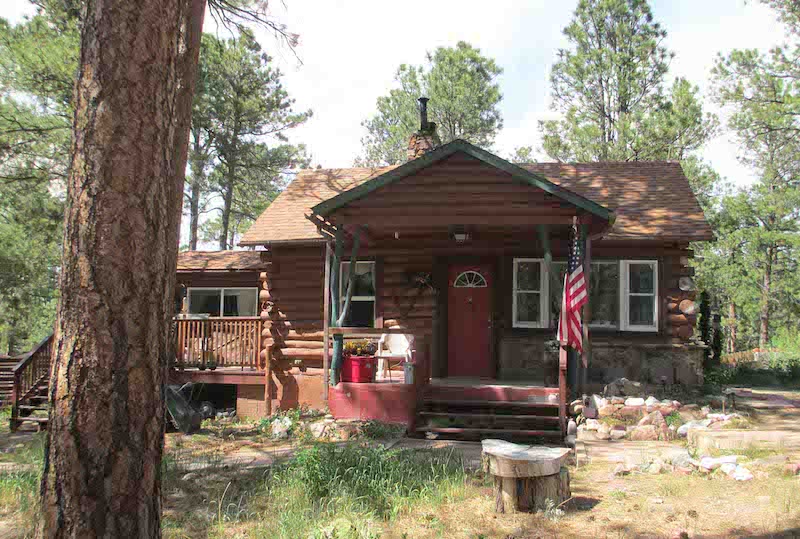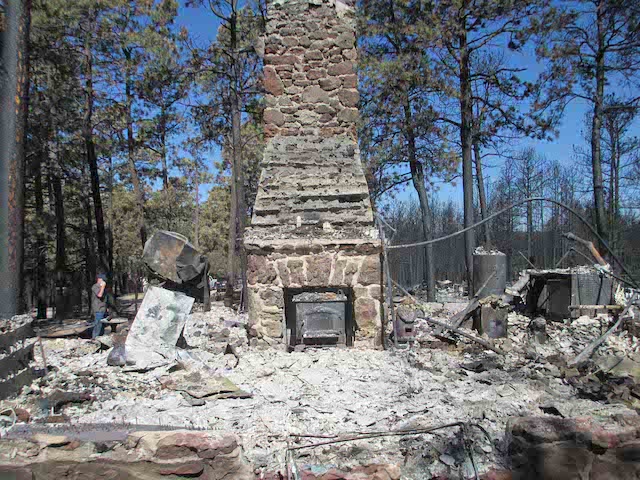It’s been a decade since the Black Forest Wildfire swept through our community, destroying over 14,000 pine covered acres, burning over 500 homes (including ours, see below), structures and killing countless pets and most tragically, two of our neighbors.
Edith Wolford’s cabin, before the fire:

After the fire: an all-too familiar scene

Tragedy manifests itself in different ways. For some, they can’t get past the lifetime of possessions they lost, as well as homes where some raised generations of family members. It may still haunt their dreams. For others, they’ve been able to move past the events of that day and the struggles we all faced to rebuild lives and homes.
We describe life by this one major milestone: “before the fire” and “after the fire” define segments of our lives. Weddings, memorable trips, when we got the new car, etc. are measured against the date of June 11, 2013.
Like chapters in a book, the wildfire is a dog-eared favorite we return to so we can make sense of it all and how the experience changed us. If not for the fire, (as the insurance adjusters often said) how would our lives be different now? What would we not have learned?
The “new normal” wasn’t normal at all. If you rebuilt, you were on familiar land but lived in unfamiliar settings. It was eerie; like living in an episode of the Twilight Zone. We got used to our new surroundings and memories of the old walls began to fade. Now, when we flip through old photos, it’s like looking back at another lifetime.
For some, tragedy struck twice with a new house fire, a serious health problem, an injury or death of someone dear. The fire was just another traumatic event on top of what folks were already trying to cope with. For others, the experience of rebuilding was filled with insurance and new construction complications that added significant stress to the recovery process. It compounded the experience and doubled the work.
The fire impacted people no matter what their loss, evacuation experience or whether they returned to the Forest or moved elsewhere.
Their reactions now, ten years later?
- We’ve moved on and just tried to get over it.
- You don’t get any do-overs in life, so there’s no use in stewing about it.
- We don’t want to be reminded, so we don’t discuss it.
- The Waldo Canyon fire took our first home and the Black Forest Wildfire took our second home a year later. We’ve moved back to town for good.
- It helped me learn that people are what’s most important, not the “stuff” we fill our lives with.
- We learned you can get through tough times if you take it one step at a time.
- My neighbor is still struggling with the losses. I try to be there for them.
- Our home is much nicer now. We miss our old place, but this is a great improvement.
That should be our goal. To aim for improvement, physically, mentally and emotionally in whatever way works best. Few of us have followed the same recovery path.
“We have a choice to make every day,” says Joshua Becker, the author of the Becoming Minimalist blog and numerous books.
I would ask, do we choose to move on and create a new life, or do we choose to carry negative experiences around our neck like an emotional boulder?
We always have a choice. Thankfully, the Black Forest community has chosen recovery!
